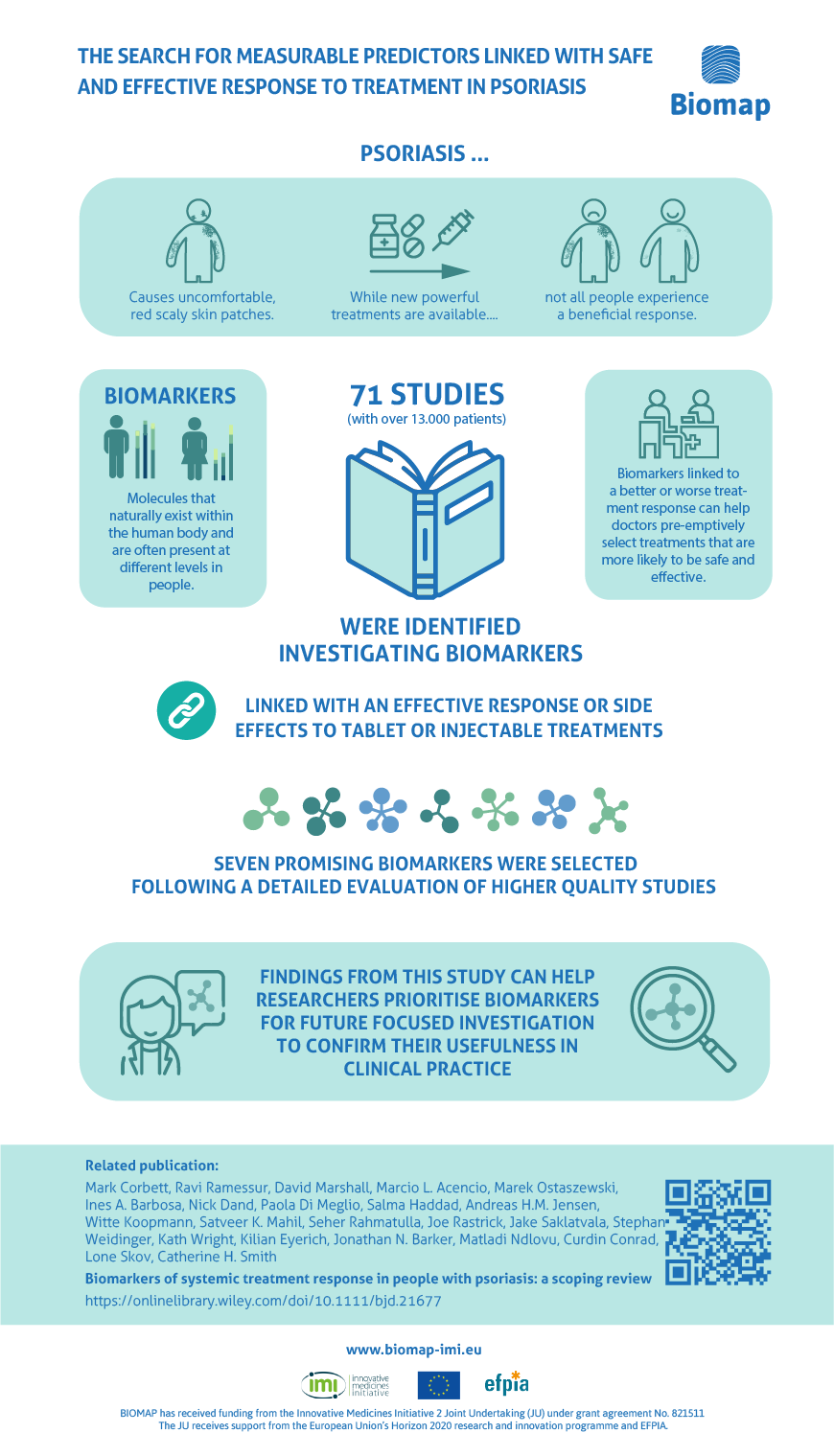The search for measurable predictors linked with safe and effective response to treatment in psoriasis
Psoriasis is a common, non-contagious, long-term, inflammatory skin condition affecting approximately two in every 100 people. People who have psoriasis suffer from uncomfortable, red scaly patches of skin which can have a significant negative impact on their quality of life. New tablet and injectable treatments have transformed the lives of those most affected, although not all experience a beneficial response.
Biomarkers are molecules that naturally exist within the human body and are often present at different levels in people who do not respond well to particular a treatment. Identifying biomarkers that are linked to a poorer treatment response can help doctors pre-emptively select treatments that are more likely to be safe and effective. This could substantially reduce the health impact that uncontrolled psoriasis can have in people whose psoriasis is poorly responsive to treatment.
This has been the focus of major research efforts with hundreds of studies having been performed in this area. To help guide future research, this study systematically searched scientific literature databases with results being evaluated by an expert group of doctors and scientists from several European research centres.
71 studies were identified investigating biomarkers linked with a less effective response or adverse events to tablet or injectable treatments used for psoriasis. Seven promising genetic biomarkers were identified following a detailed evaluation of the higher-quality studies. These biomarkers were found to play key roles in molecular pathways implicated in psoriasis. Findings from this study can help researchers prioritise biomarkers for future focused investigation to confirm their usefulness in clinical practice.
Related publication: Biomarkers of systemic treatment response in people with psoriasis: a scoping review. Mark Corbett, Ravi Ramessur, David Marshall, Marcio L. Acencio, Marek Ostaszewski, Ines A. Barbosa, Nick Dand, Paola Di Meglio, Salma Haddad, Andreas H.M. Jensen, Witte Koopmann, Satveer K. Mahil, Seher Rahmatulla, Joe Rastrick, Jake Saklatvala, Stephan Weidinger, Kath Wright, Kilian Eyerich, Jonathan N. Barker, Matladi Ndlovu, Curdin Conrad, Lone Skov, Catherine H. Smith. British Journal of Dermatology (BJD), doi: https://onlinelibrary.wiley.com/doi/10.1111/bjd.21677

